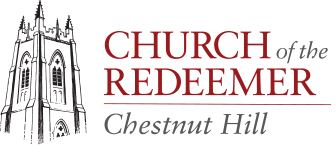We are a Christian parish in the Episcopal Church and the Anglican Communion. We invite you to join our community. |

- Home
- Learn & Gather
- Children
Children at Church of the RedeemerRedeemer helps children find God's true purpose for their lives: the unfolding of Christ’s life into the world through their unique and developing personalities. Redeemer creates and facilitates age-appropriate programming providing opportunities for your children’s hearts, heads, and hands to be formed into Christ’s own. |
Offerings for Children at Church of the Redeemer Sundays Nursery care for children age 3 and under begins at 8:50am in the nursery, located in the downstairs Sunday School wing. This ministry is provided by our staff childcare workers who are CPR certified. Childcare is available almost every Sunday morning and evening throughout the year; alerts as to canceled nursery care are announced in the weekly email.Choristers: Reading Age - High School The newly structured Redeemer Choristers is a group of energetic children, ages approximately 8 through high school, who rehearse every Sunday at 9am and enjoy singing in church with the adult choir monthly during the school year. As part of their musical education, the children receive professional theory and vocal training. If you would like more information about this life-giving opportunity for your child (or someone you know), please email Sarah Rose Taylor at choristers@redeemerchestnuthill.org. Godly Play: Aged 3yrs to 2nd grade Our Godly Play class gathers in our classroom downstairs after the children’s homily in the main sanctuary. The children will be led out of the parish to their respective class by our Sunday school volunteers holding the cross. Godly Play helps your children make meaning of bible narratives, Jesus Christ's life, and church saints through story, wonder, and play. Godly Play offers a Montessori-style, developmentally appropriate way of entering into and experiencing the biblical story. In Godly Play, we play with the language of God and God’s People in sacred stories, parables, liturgical actions and silence. Together we learn about God and our relationship with God through this powerful language, through our wondering, and through the community of players gathered together. The Apostles Class: 3rd - 5th Grades Apostles Class cycles through the gospels, exploring Jesus’ miracles, teachings, parables, stories, prophecies, and invitations through reading, wondering, acting, and living the Gospel. The lessons provide more involved discussions and activities than in the Godly Play classrooms. We find by third grade, students are ready to stretch themselves a little further and engage more directly with the big questions. The apostles class will be led out of the parish after children’s homily to their respective class by our Sunday school volunteers holding the cross. Saints & Martyrs Class: 6th - 9th Grades The Saints and Martyrs help create a foundation of scriptural understanding by learning to cultivate a theological imagination through reading the bible, asking questions, and making connections. This class is led out of the main sanctuary after the children’s homily and gathers in OPH (building outside the parish office) for their lesson. What Happens in Godly PlayAt the Threshold
A doorkeeper waits by the door to the Godly Play classroom, warmly welcoming children into a circle. He or she says, “Are you ready to be part of a Godly Play classroom?” Building the Circle
Children make their way into the classroom and sit in a circle around the storyteller. He or she talks quietly and easily with the children, building a community where each and every participant is warmly welcomed. The storyteller says, “We need to get ready for the story.” The storyteller then shows how by sitting quietly, legs crossed, hands at the ankles. Conversation yields to silence. The storyteller asks the children where we are in the church calendar, rings a bell to begin the story quiet the students. Presenting the Lesson The Storyteller goes to get the materials for the day’s presentation –a box, a basket or a tray. Slowly, deliberately, the storyteller brings out the story figures and objects, gently moving and arranging them as he or she tells the story. The children’s eyes focus where the storyteller’s eyes and hands focus, on the small wooden figures, painted plaques or beautifully finished props moving in the circle. The lesson continues, moves forward… and concludes. The storyteller sits back, but keeps his or her eyes on the figures. “I wonder… I wonder what part of this story you like best?” There is silence for a moment, and then a child answers… and then perhaps another. The storyteller affirms each answer. The storyteller continues, “I wonder what part is the most important?” Children name different parts. Every serious struggle to answer is, again, affirmed. “I wonder where you are in the story or what part of the story is about you?” “I wonder if there is any part of this story we could leave out and still have all the story we need?” The storyteller listens respectfully to every answer, repeating it, never calling one response good or another wrong. It is the child’s effort to speak theologically in a seriously playful way that is being supported. Response
The wondering sinks into silence. The children watch as the storyteller puts away the lesson. He or she invites them to think about what work they would like to do in response to the lesson. The children have been involved in the story and the wondering. Now that absorbed involvement continues as they, one by one, name what response they choose to make. Some play mindfully with the materials from the presentation or from other presentations. Others want to paint. Still others work with crayons. Saying goodbye
When the response is finished, the storyteller draws the attention of the group to gather for a reading or song as each child waits to be picked up by his or her parent. When a parent arrives at the entrance of the classroom, the doorkeeper quietly escorts their child to the door, looks into their eyes, smiles, and quietly says, “It was a pleasure to have you here today. Thank you for being with us.” Helpful tips for parents When you pick up your child or teen, keep in mind that young children will not always be able to tell you what they learned, because what they learned was how to learn about the powerful language of the Christian people. Children will not always be able to show you a physical product for their “work” that day, because some of what they’ve learned cannot be put into words even by adults. We focus on our relationship with God and the depths of relationships in the community. Weekly Schedule on Sunday Mornings: 8:50-12:00 Nursery Care 9:00-9:50 Choristers 9:00-9:50 Coffee Available + Fellowship for Caregivers in Coffee and Connection Lounge Across from the Nursery 10:00-10:05 Children’s Sermon 10:10-11:15 Sunday School Godly Play, Apostles Class, and Saints & Martyrs Class If you would like to have the dates and times for all the gatherings please see the Families Brochures (Dates here) (Programs here) and email the Director of the program, Barrie Rose Bliss, at families@redeemerchestnuthill.org if you would like a brochure mailed to your home!
Summer Offerings for Children at Church of the Redeemer Godly Play: Aged 3 to 3rd grade Godly Play (3yrs-2nd grade) will continue through the summer with a break on Father's Day weekend and Labor Day weekend. Infant and Toddler Nursery ChildcareNursery Care will continue on Sunday mornings from 9am-12pm through the summer with no breaks! |





